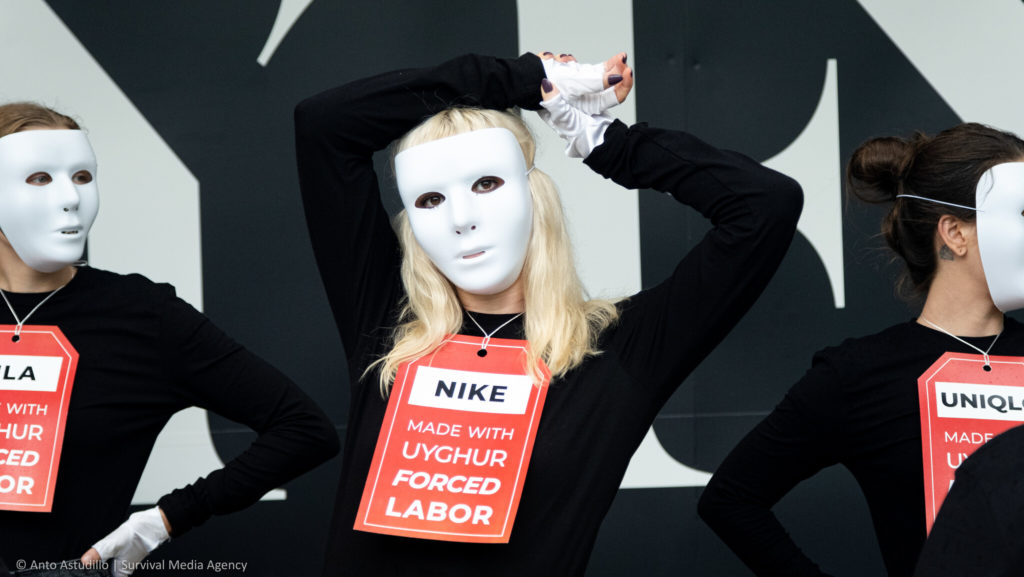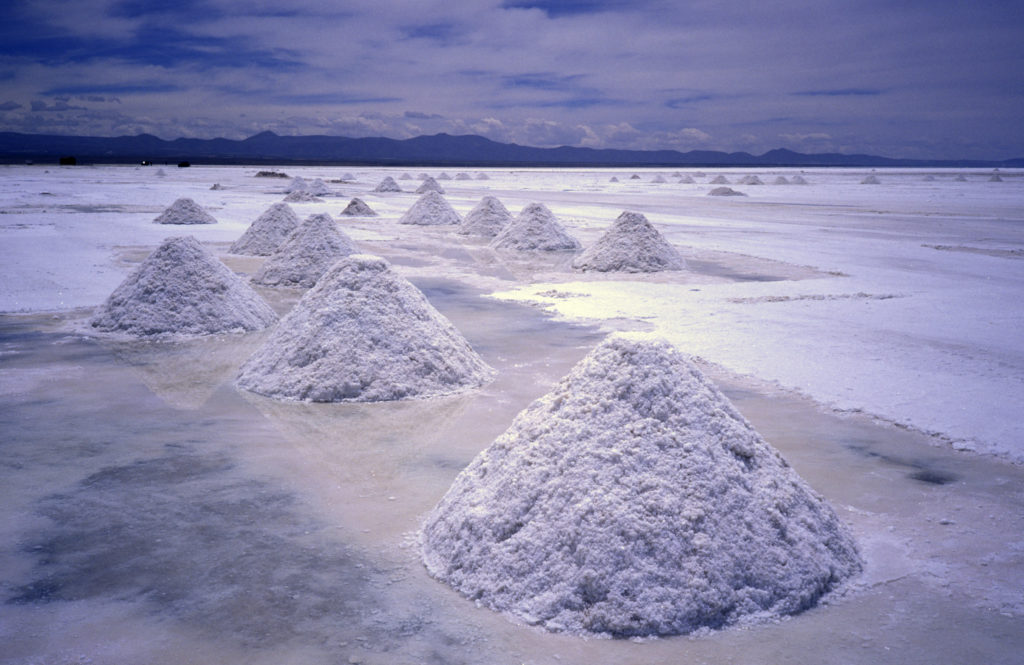The various relationships between the media and different corporate interests obscure the true story of human rights violations at the centre of our modern global economy. What can news audiences do to rise above the noise and dig beneath the surface?
A propaganda model
Tesla made headlines again this week after drawing criticism over a new showroom opened in China’s controversial Xinjiang province. Elon Musk and his company are no strangers to the harsh media spotlight, and the CEO has hit back several times throughout the years, accusing his critics of ‘holier-than-thou hypocrisy’.
Musk went further in his critique, as he described ‘big media companies who lay claim to the truth, but publish only enough to sugarcoat the lie’. In a separate Twitter exchange four days later, he asked ‘Who do you think *owns* the press? Hello’, in response to the following question from NBC News reporter Ben Collins:
‘Do you think it’s in the interest of powerful people to A: support a free press that exposes their lies, or B: tear it down so their lies are easier to tell?‘
Musk’s response hints at an understanding of a mass media ‘propaganda model’, described by academics Noam Chomsky and Edward S. Herman in their 1988 book Manufacturing Consent as ‘the forces that cause the mass media to play a propaganda role, the processes whereby they mobilize bias, and the patterns of news choice that ensue’.
In layman’s terms, the propaganda model describes ‘five filters’ through which information passes in order to appear in the news, and WHAT information threatening to corporate interests is allowed to reach the public – dependent on which corporate interests own a particular news outlet.
David vs Goliath?
However, Musk is not a victim of corporate abuse; this is not a David vs Goliath story. If we step away from the apparent polarisation between the mass media and the Tesla CEO, what we uncover is simply a power play between two incredibly powerful vested interests, and convenient cover for labour and human rights abuses.
The constant attacks on Musk for all manner of things muddies the field and often obscures the more serious stories, as well as legitimising Musk’s claims that the media is out to get him – and that journalists don’t criticise other car manufacturers to the same degree as Tesla. We saw a similar scenario play out with media treatment of Donald Trump and Joe Biden, with the media narrative differing notably despite remarkable similarities between the two administrations.
Of course, it is important to criticise companies for operating in regions of the world where human rights abuses are rampant. In 2020, Disney similarly came under fire for filming the movie Mulan in Xinjiang, and one could credibly argue that media uproar regarding Disney and Tesla’s operations in China is justified.
To briefly play devil’s advocate, Musk’s claims of ‘holier-than-thou hypocrisy’ ring true when one considers that his company has never been criticised for opening showrooms in the USA, a country with an appalling human rights record and concentration camps in its southern border states.

What is happening in China?
Furthermore, one should be aware that this type of story also serves as a distraction from the genuine nature of what is happening in China. Xinjiang province is the home of China’s Muslim Uyghur population. It is therefore presumed that Xinjiang is the sole location where violations of the Uyghurs human rights are occurring.
However, The Key To The Future research team has uncovered information that describes how Uyghur peoples are being transported across China, moved far from their homes in Xinjiang, and sent to work in factories where any leisure time is dominated by the infamous ‘patriotic education’ programs run by the Chinese state.
In 2021, the sportswear manufacturer Nike made the news for its statement on Xinjiang:
‘Nike does not source products from the [Xinjiang] and we have confirmed with our contract suppliers that they are not using textiles or spun yarn from the region.‘
Nike made no mention of Shandong province on the opposite side of China to Xinjiang, where enslaved Uyghur peoples make clothing for Nike in a factory owned by South Korean ‘chemical and textile conglomerate’ Taekwang Group. Nike’s statement regarding Xinjiang made headlines in 2021, while the true nature of the company’s involvement in Uyghur forced labour has been successfully swept under the carpet and largely left off the news agenda.

Out, damned spot
Nike’s statement is a prime example of ‘wokewashing’ – the practise of delivering a statement regarding human rights, labour standards, LGBT+ and other equalities issues in order to disguise unethical or illegal business practises. In many ways, greenwashing – which we are all familiar with – is a form of wokewashing.
Tesla has been instrumental in the popularisation of electric vehicles, and Elon Musk’s celebrity has played a major role. Despite his hubris, some of Musk’s enterprises are set to revolutionise the world in which we live, and it would be disingenuous to say otherwise. However, this is not enough to counteract the unethical and often unlawful business practices of Tesla or Musk.
In 2019, a United States federal judge ruled that ‘Tesla violated labor laws on 12 different occasions for preventing employees from exercising their right to unionize, including disciplining and firing employees for union activity’.
Tesla was found to have “wrongfully terminated one worker for union activity” and “wrongfully issued a warning to another union supporter”. The CEO was found to have unlawfully “implied via tweet that Tesla workers who unionized would have to give up their company stock options”.
Lithium coup d’état
Equally alarming was Musk’s tweet regarding the 2019 Bolivian coup d’état. Following a disputed election result, Bolivian president Evo Morales was removed from power by the military and police, and Jeanine Áñez – an opposition senator – assumed the role in his place.
At the time of the coup, Morales was working to create a publicly owned lithium industry to capitalise on Bolivia’s lithium reserves, which make up between 25% and 45% of the world’s known lithium reserves. Lithium, of course, is a vital resource for the electric vehicle industry.
Morales was negotiating a deal with other lithium-producing nations to set an international price for lithium. The deal notably would not have included the USA. Speaking a month after being removed from power, Morales said he was ‘convinced that it’s a lithium coup d’état’.
In 2020, Elon Musk tweeted a sardonic response to accusations of US support for the coup, which would have allowed US businesses access to Bolivian lithium, stating: ‘We will coup whoever we want! Deal with it’. Musk’s supporters dismissed this as a joke, but it’s difficult to believe he was joking when one considers the context. If it was a joke, it was made in considerably poor taste.

Rise above the noise, dig beneath the surface
The Bolivian coup once again uncovered the double standards at play within the mass media. Despite uncritically repeating claims of election fraud, while citing no evidence, the US media found no problem with an unelected interim president ruling over Bolivia for almost a year, despite never having run for president. In October 2020, another election was held, Morales’ party was democratically restored to power, and Jeanine Áñez was arrested in March 2021 for her role in the coup.
What this whole situation proves once again is that Musk and the media are not true adversaries but are instead merely parts of a much larger system: one which seeks to promote US interests and the interests of global capital to the detriment of democracy and the rule of international law. The problems in our world are much larger and go far further than merely one individual such as Musk, or one institution such as the mass media.
It is important to approach the news with a good understanding of why certain stories reach your screen while others are hidden beneath seemingly infinite pages of search engine results. The intention of this article is not to cast doubt over all mass media output but simply to drive home one point: that what is required in 2022 is not more media scepticism but better media literacy. Only then can we build a better future and a truly sustainable world.
